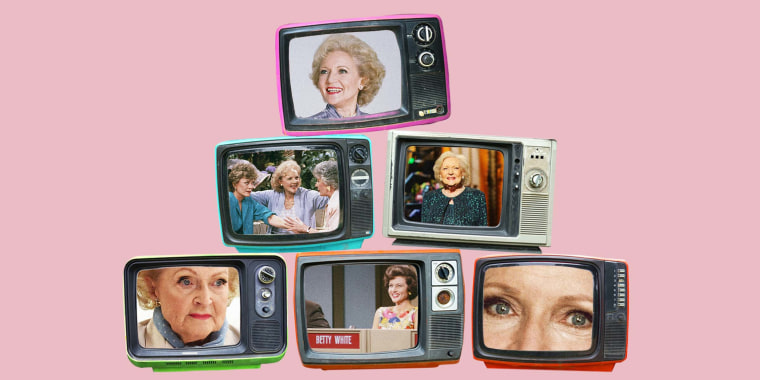TV is Betty White and Betty White is TV.
Known for decades as a plucky and funny TV star, White’s ascension in a medium that didn’t exist at the time of her birth parallels the role the small screen would wind up having on the world.
Owner of the Guinness World Record for Longest TV career for an entertainer (female), White, who died late last month shortly before she would’ve turned 100, dominated television in a way that exhibited the impact it could have, while also showcasing her own dynamic range.
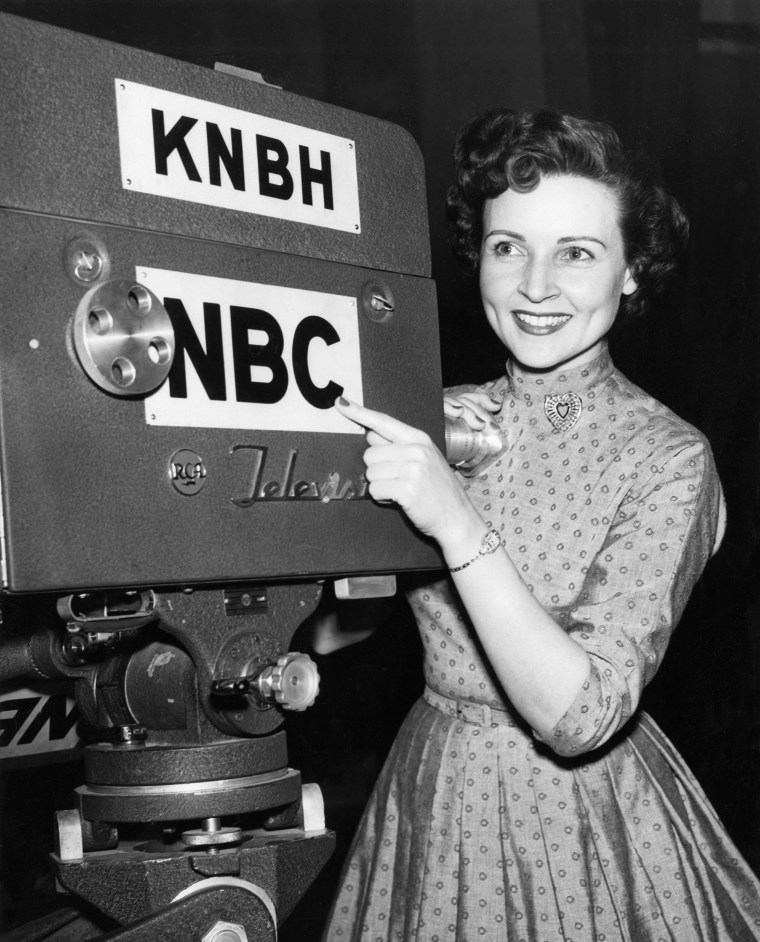
“You can almost say that she and television matured together at the same time,” Chairman and CEO of the Academy of Television Arts and Sciences Frank Scherma told TODAY prior to her death. “And that medium was so new, the television medium was so new, she was in a position to do lots of different things, a little bit of everything. She was just a natural performer. She was just great at it.”
“I think when you look at her, and you look at television, you realize that they grew up together, and that the history of television was really close to her growth in our business, which I think is extraordinary,” he added.
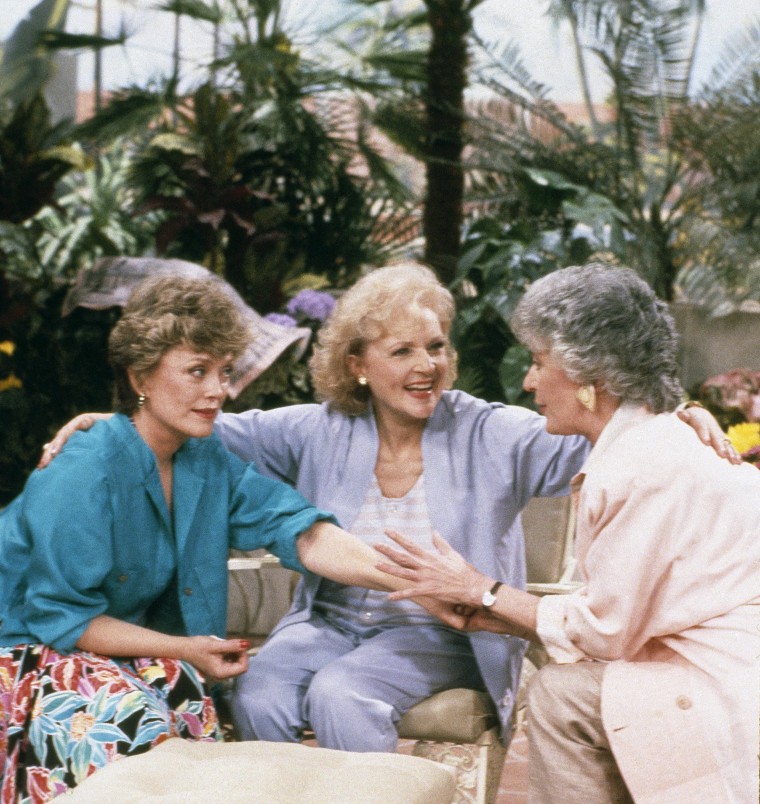
In 1939, “The Wizard of Oz” and “Gone with the Wind” graced movie screens, but the year marked the beginning of White’s foray into television, when she appeared on an experimental TV show in Los Angeles, the start of a journey that would go on to touch so many forms of entertainment on the small screen.
“As a performer who came out of television, she was in every genre you could imagine, and she conquered it and she did fabulous in it,” Scherma said. “She was in talk, variety, sitcoms, soaps, game shows. She did drama, she did late night.”
It’s that versatility that proved key to her and to television, particularly in its early days.
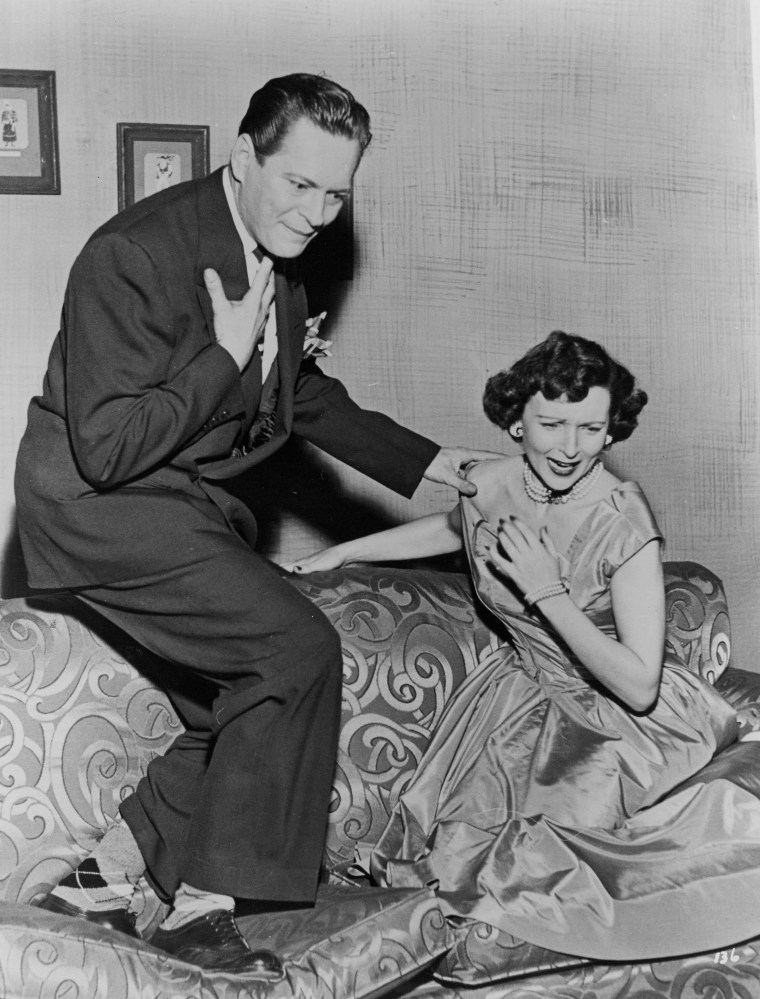
“When people started looking at television, I think they were going to have a box in their room, everybody was like, ‘Yeah, it’s another passing fad,’” Scherma said.
“I don’t think it was given the gravitas, and actually the ability to change people’s perceptions and thoughts and things about that. So I think the fact that there were no rules at the time, the fact that you could experiment with things and stuff like that, I think that was fabulous, not only for television, but I think it was also a big part of who she became. Because she wasn’t in front of her mirror, testing out different things. She was actually testing them out with audiences and testing them out with people watching. I think that combination of that beginning of television time was a big part of her success, and I think she helped television become successful.”
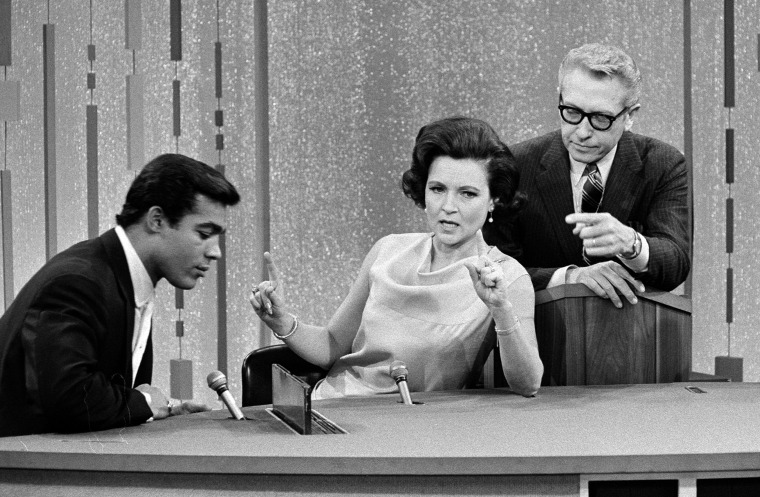
White and TV didn’t necessarily have to reinvent themselves, as much as they had to try new things. She cut her teeth by appearing for four years with Los Angeles disc jockey Al Jarvis on his TV show, five and a half hours a day, six days a week.
“It was like going to television college,” she said of her time on the show. That experience may have set the stage for the versatility that would serve her so well for decades.
She hosted variety shows, performed on a bourgeoning new format known as game shows, hosted parades and, of course, cemented her legacy with two very different characters, Sue Ann Nivens on “The Mary Tyler Moore Show” and Rose Nylund on “The Golden Girls.” Both shows are important to the history of TV.
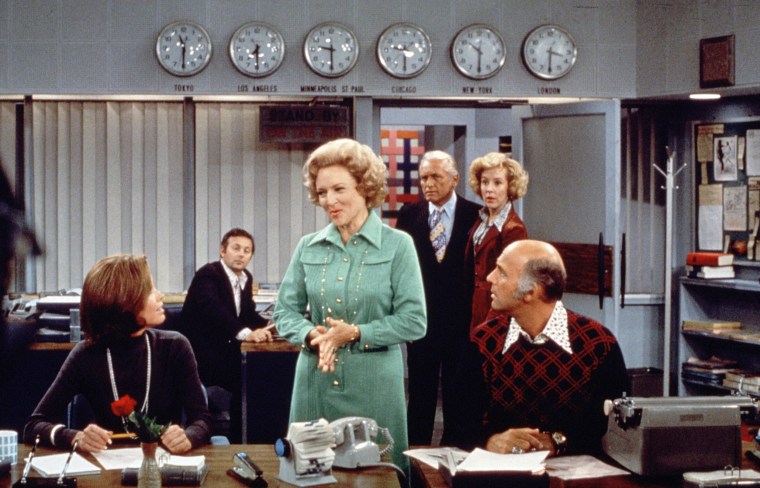
It would be easy to make the blanket statement that White is a legend. It’s true, of course, but it’s why that makes her unique in the history of television because, while it may not be obvious, White was also an innovator in feminism, with her work on “The Mary Tyler Moore” echoing who she was.
“There were things that went on "Mary Tyler Moore" about Mary becoming a woman on her own working in a man’s world,” Scherma noted. “That was completely Betty White way early in the day, and even till recently.”
She produced her 1950s sitcom show “Life With Elizabeth” at a time when it wasn’t common for a woman to do so.
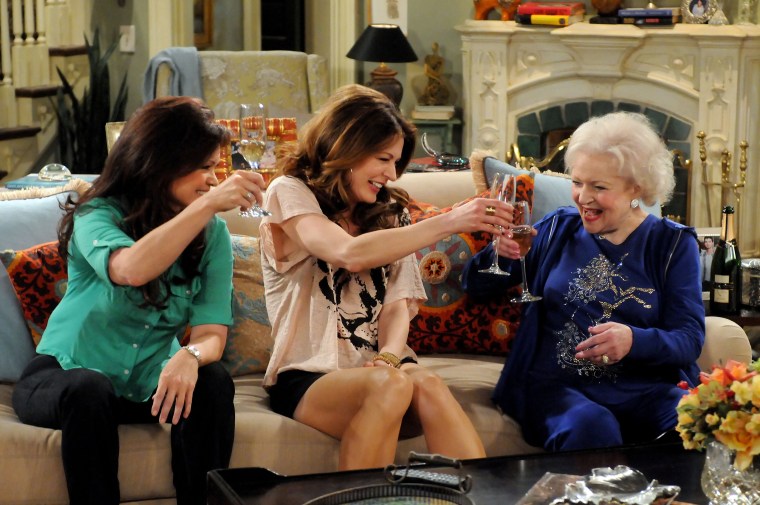
“That was so before the women’s movement that I don’t think we even thought of it,” White said in the 2018 documentary “Betty White: First Lady of Television.” “I never even thought of it being a different gender. You did whatever the job was and whatever job you could get.”
Television as a reflection or driver of societal change is something we may take for granted today, but White provided an early example. She took a stand when she cast Black dancer Arthur Duncan on her 1950s series “The Betty White Show.” The move was met with plenty of resistance, but White did not budge.
“In 1954, #BettyWhite was criticized after having Arthur Duncan, a Black tap dancer, on her show,” The Martin Luther King, Jr. Center tweeted after her death. “Her response: ‘I’m sorry. Live with it.’ She then gave Duncan even more airtime. The show was canceled soon after. Rest well, Betty.”
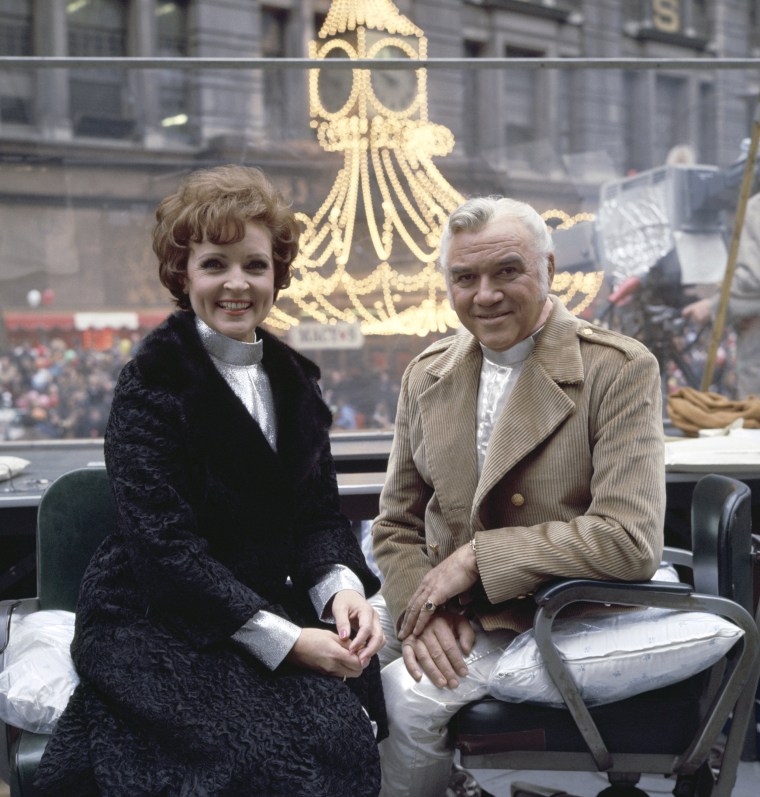
The late Carl Reiner, a fellow titan of comedy, had also acknowledged the impact White had.
“She’s one of the pioneers,” he said on “Betty White: First Lady of Television.” “A lot of us are here because she was there at the beginning. She set the standard. She set the way for many people.”
White also broke a glass ceiling when, in 1983, she became the first woman to win an Emmy for hosting a game show, for “Just Men!” White appeared on scores of game shows over the years as a celebrity panelist, helping to popularize this escapist form of entertainment that has morphed, much like White did.
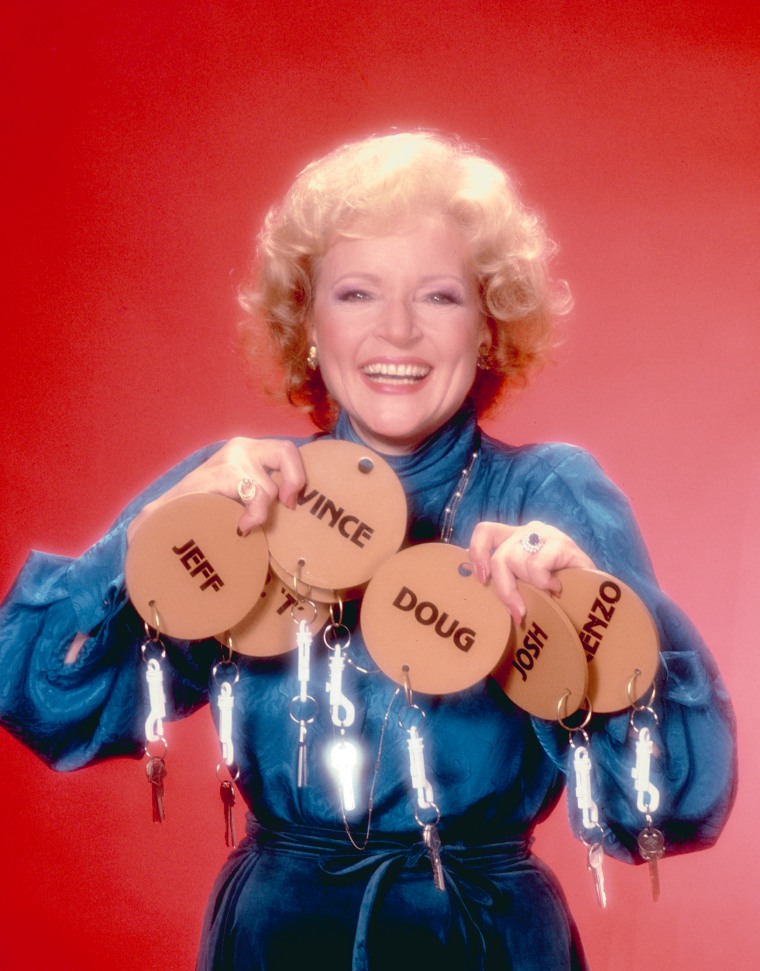
“I think someone who was, you know, considered an actor, doing these game shows, I think automatically gave them more relevance,” Scherma said. “But also what it did was those people who were on there, they had to be quick, they had to be witted, they had to be very clever.”
“I think she gave she gave this new medium relevance by appearing in them. And people like her, so people wanted to see it, people wanted to watch it. And then people liked the show.”
He relationship with game shows continued in the 2010s with “Betty White’s Off Their Rockers,” which earned her a trio of Emmy nominations. She didn’t stay away from sitcoms, though, after “The Golden Girls,” landing memorable guest turns on “The John Laroquette Show,” “Suddenly Susan” and “Yes Dear” before starring in “Hot in Cleveland.”
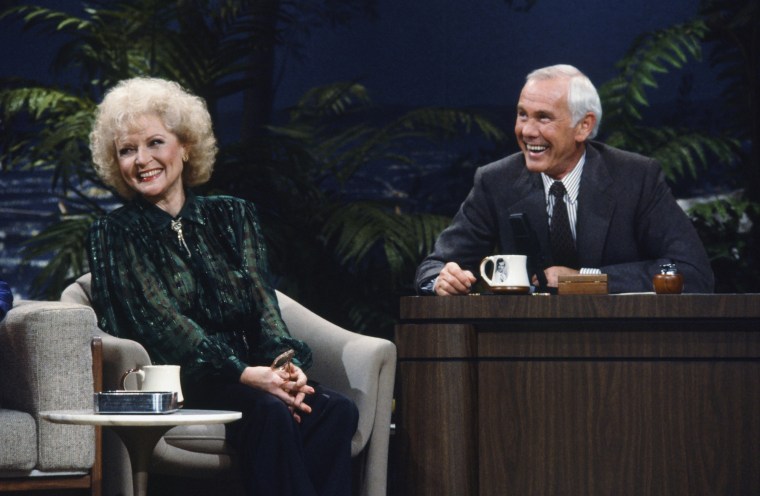
Her work on comedies may stand out to many and for good reason. While “The Mary Tyler Moore Show” depicted a new, modern woman, “The Golden Girls” portrayed senior citizens in a way that has proven so successful the series continues to go strong in syndication and streaming.
The power of television also extends beyond the shows we watch and White would prove that, as well, in a memorable Snickers commercial in 2010.
Is it coincidence, then, that same year White enjoyed a celebrated full circle moment? After starting in live TV, she would earn raves — and an Emmy Award — when she hosted “Saturday Night Live,” thanks to a campaign by fans pleading to get her on the show.
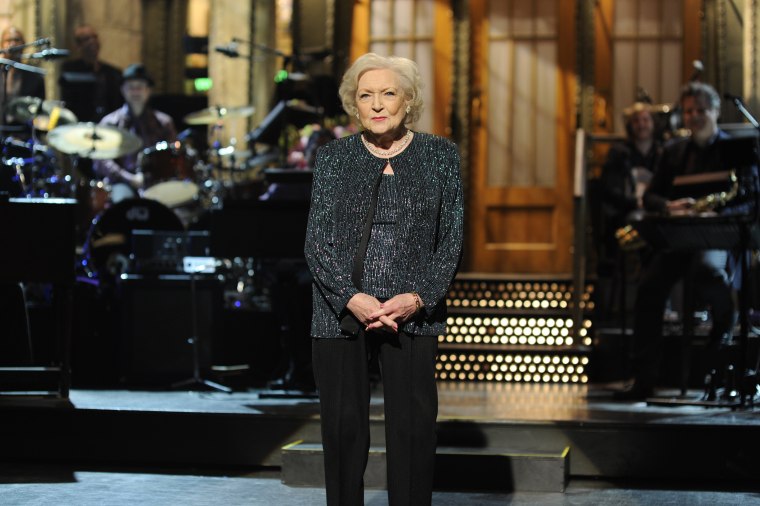
Her “SNL” episode is still being discussed today and really hones in on the idea of what makes a TV star, crystallizing the notion that White and TV grew up together when you consider the fact that phrase didn’t necessarily exist when White broke into television.
“I think seeing her on ‘Saturday Night Live’ was just magnificent for someone with the longevity that she’s had, that she still has that staying power with such a young audience, that she’s still relevant to an older generation and a younger generation, I think, just to go back to that star power,” Scherma said. “That’s a lot of what gives you that star power. She’s so relevant to so many different generations.”
And the same can be said for television.
